-
About
- About Listly
- Community & Support
- Howto
- Chrome Extension
- Bookmarklet
- WordPress Plugin
- Listly Premium
- Privacy
- Terms
- DMCA Copyright
- © 2010-2025 Boomy Labs

 Sheila MacNeill
Sheila MacNeill
Listly by Sheila MacNeill
List of ideas and references for SEDA 2016 winter conference

Some strange things seem to be happening in the learning technology and T&L debates at the moment. There appears to be a growing presence of an anti-tech resistance, challenging the efficacy of technology (and those who use it). Some of these ‘think pieces’ question the motivations of those using technology in their class (both students and teachers), demean the status of social media as an active and fertile ground for intellectual debate, try and institute blanket bans for the good of the learner and actively argue that we need to ‘get back to chalk’. These have become battle lines in a fake war between protectors and challengers, defenders of the faith versus the barbarians at the gate. The innocent victims in all this posturing and puffery are the engaged teachers and learners (thanks @antonycoombsHE for the input). We can see the small bubbles of evidence for this assertion increasingly breaking through to the surface Let’s take Facebook as the canary in the coal mine;
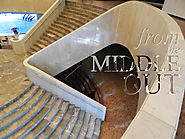
At the heart of defining and understanding resistance is the idea that two opposing forces are at work; the force being resisted and the force doing the resisting. In terms of universities and the way they engage with change, the forces of resistance can create dichotomous arguments; Traditional vs techno-centric. Student-led vs research informed. New vs old. Affordances vs Resistances. Technologies vs Pedagogies. Service vs Strategy.
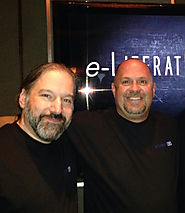
I have been pretty relentless in mocking Knewton CEO Jose Ferriera for his “robot tutor in the sky” description of the company’s adaptive learning product. And I pledge to continue this proud tradition. It’s the gift that keeps on giving.
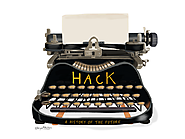
This talk was presented today at the Designs on eLearning conference. The full slide deck is available here.
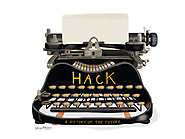
I confess. I’m a little perplexed by the recent call to create a new discipline for education technology. There are already hundreds of academic conferences and academic publications and prof...

(There’s probably a really good metaphor I could make about this image, but I’ve included it just for the Vasari ref below and because Cellini was something of a ‘character’).

This year’s Designs on eLearning was hosted by the New School in Manhattan. The theme ‘Anxiety and Security’ brought out some challenging thinking, especially in the keynotes which were given by Joel Towers and George Siemens (in the form of a debate) and by Audrey Watters (who posted a full transcript of her talk) on day two. Both keynotes contained much about the role education should play in society and the responsibilities we have as educators to consider ideas of social justice and respect rather than falling into behaviourist modes. This, as Audrey pointed out, is especially important if we work with digital technology because ‘edtech’ emerges from a behaviourist ideology in which students become dehumanised extensions of a learning machine. This learning machine then becomes complicit in the bolstering of inequalities and a failure to, as George put it, ‘normalise opportunity’. In addition to this a learning machine approach does not equip our students with the ability and resilience to respond to complex problems which should be a central tenet of design education.
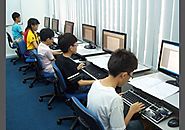
"A costive reserve on these subjects might have procured me more esteem from some people, but less from myself." — Thomas Jefferson

Dean Burnett: Some scientists argue that social media use is pointless. This scientist disagrees.

When I read the article that prompted the whole EdTech as discipline discussion, I wondered what was behind the claim that a discipline was emerging.
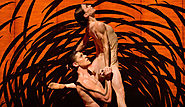
A hypnotic fusion of sound and movement; Scottish Ballet's Autumn Season of Crystal Pite's Emergence and Sophie Laplane's Sibilo is a multi-sensory experience not to be missed.
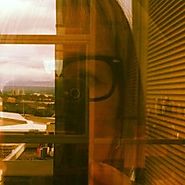
I haven’t blogged for the last couple of weeks, not because I haven’t wanted to, there have been a number of posts that have made want to write. Mainly it’s because I have at last finished and more importantly submitted my CMALT portfolio, and there have been one or two other work things that have…
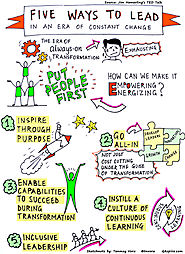
Leading in an era of constant disruption, change and transformation is not easy. In such transformation efforts, soft aspects of leadership play as crucial role as the hard aspects like systems thinking, innovation and execution of change.
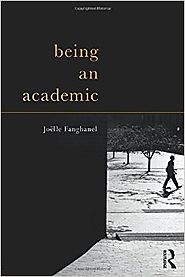
Being an Academic: Amazon.co.uk: Jolle Fanghanel: Books

continue to live or exist, especially in spite of danger ... Meaning, pronunciation, example sentences, and more from Oxford Dictionaries

(of a child, animal, or plant) grow or develop well or vi... Meaning, pronunciation, example sentences, and more from Oxford Dictionaries

In the dark spirit of Ambrose Bierce, let us consider new definitions of familiar terms. Specifically, let’s see what happens when we give…
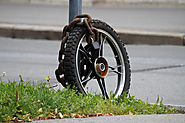
I spoke on a panel this week of successful externally funded research fellows. These fellowships are the holy grail of early career life - recognition of your achievements and potential and secure salary for a few years. We spoke to later year PhD students about our careers and strategies, offering tips and pitfalls. Over morning…

Explore the world through community-created collections of beautiful photos free to use under the Unsplash License.

I threw out some words on Twitter last night in response to Lawrie Phipps at Jisc who says it's time to think about Next Generation Digital Learning Environmentst (#Codesign16 #ngdle). In his accompanying Storify introduction embedded on the blog post he says, "we have seen behavioural changes across society, and in education we have a student…

The Jisc codesign challenge launched on 31st October - we are asking open questions and eliciting opinions from across the sector. What is the future for next generation digital learning systems?

At present, only title information is available on ingentaconnect.com for this article. This is due to copyright restrictions.
